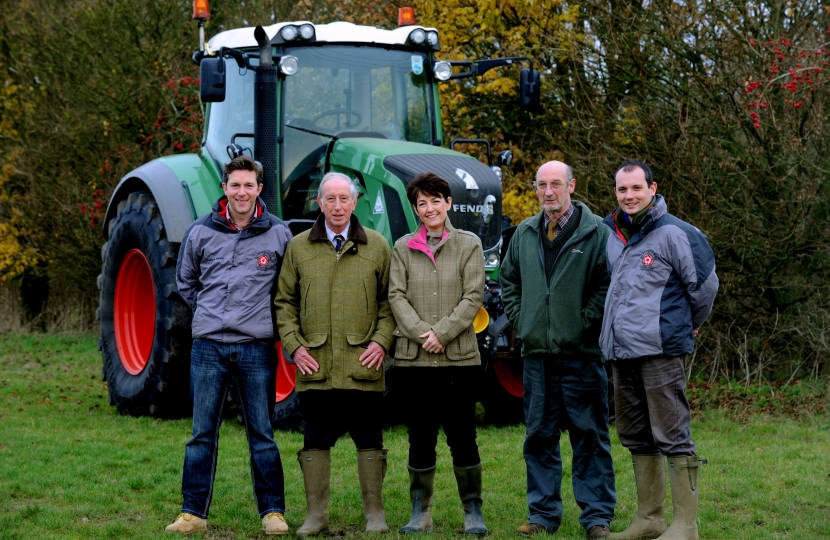
With the debate surrounding our membership of the European Union (EU) well under way and having already declared my support for the renegotiations still taking place, it is about time we talk about the EU. Having spoken at great lengths already about the EU with constituents and representatives alike, what strikes me was the lack of clarity over what the future of our rural and farming industries, in East Anglia and the UK, will look like following the outcome of our EU referendum.
After all the Common Agricultural Policy (CAP) is the largest budget within the EU and costs around £240 billion, roughly 40% of the total EU budget. Farming income delivers £5.4 billion to the UK economy, £3 billion of which comes from the CAP. Three quarters of the UK’s £13 billion agri-food exports goes towards the European Union and with exposure to a market with 500 million customers, farmers all across the EU can compete freely and fairly.
Nevertheless, sentiments towards CAP and the EU within the farming community are mixed, with some hoping to cast off the red tape and access a more global market. It is often felt that the EU is too cautious, choosing instead to compromise on the competitiveness of the market and ultimately stalling progress for farmers. With examples like Switzerland and Norway, some farmers feel the UK can go it alone and reclaim control over the UK agricultural industry.
At present, our membership of the EU and within the CAP provides guaranteed and lasting security for the agricultural sector over that of any individual member state. A move towards BREXIT would require an entirely new model for managing our farming market. It is unlikely that the subsidies that the EU provides farmers could be matched by the UK on its own. Nevertheless, as an essential industry and one that operates under environmental restrictions, the farming industry requires subsidies. However, some farmers feel the system of EU subsidies reduce efficiency and competitiveness, holding more successful farmers back. Clearly, there is much we still do not know.
Farming is, of course, essential to East Anglia with around three quarters of the region’s land used for agriculture and employing around 39,000 people within this sector. The decision regarding the UK’s membership of the EU will be significant for the region. However, it truly is the case that any decision to leave the EU will deliver greater uncertainty, as the market would need to trial an entirely new system with no guarantee of an improved outcome.
The Common Agricultural Policy is currently undergoing its own reforms, separate from the renegotiations with concerns of the farming community over a potential BREXIT being taken into consideration. Let’s hope this drives improvements. Nevertheless, guarantees for farmers looking to leave the EU are next to nothing. What is clear is that whilst there is no quick fix, for farmers, leaving the EU at present would truly be a leap in the dark.
Published in the EADT